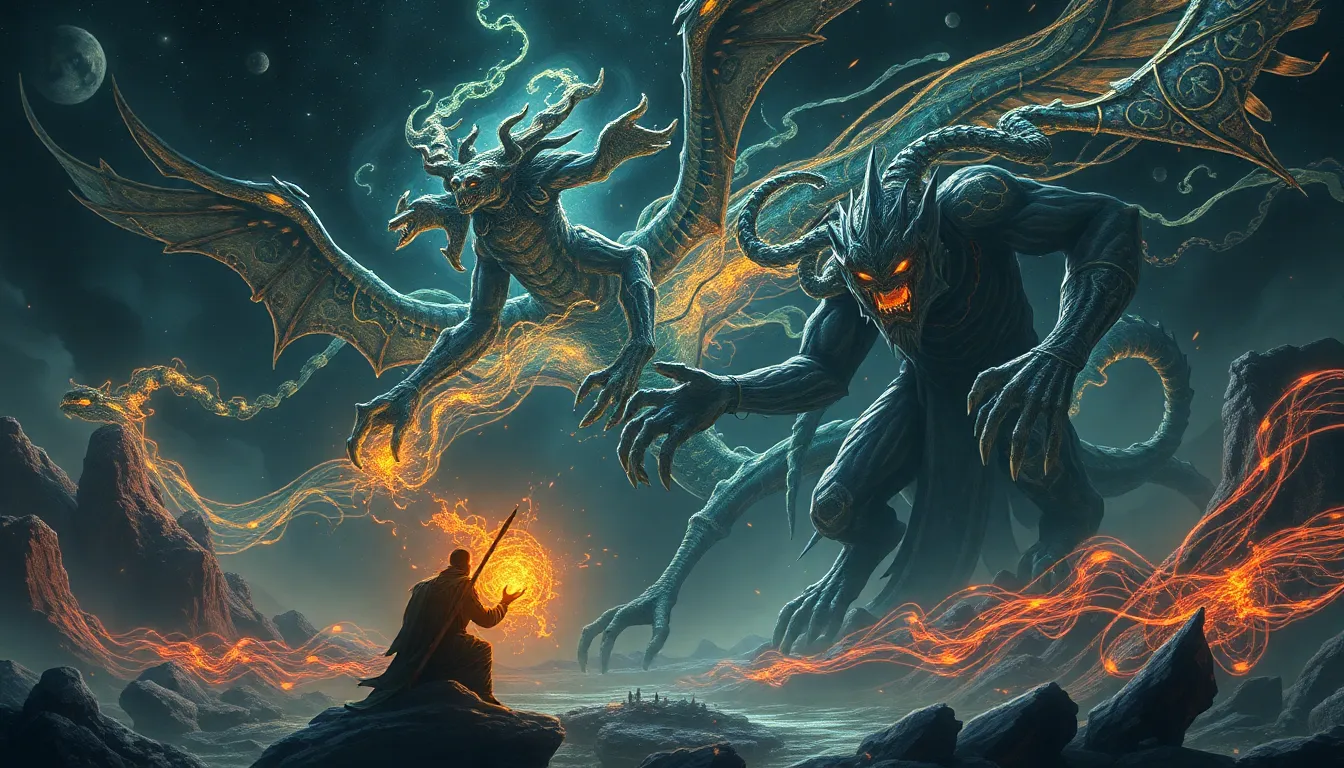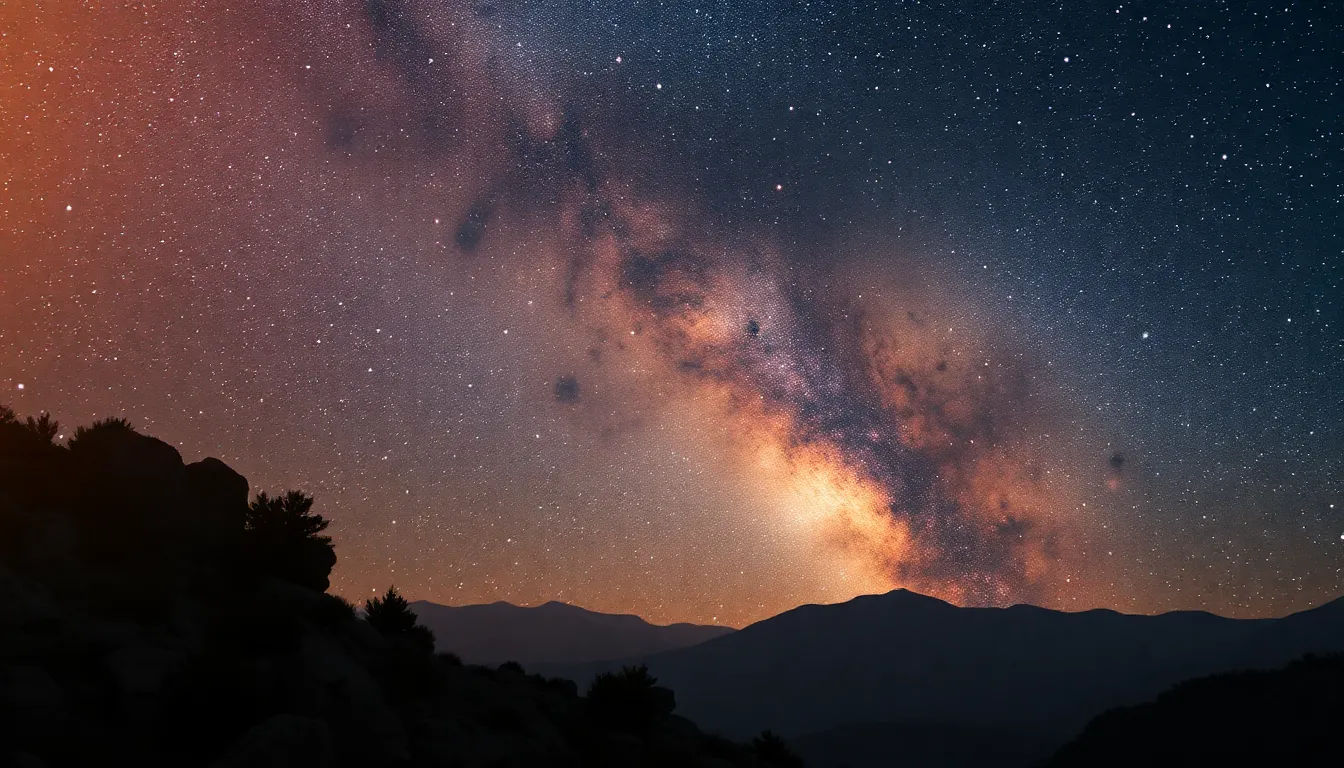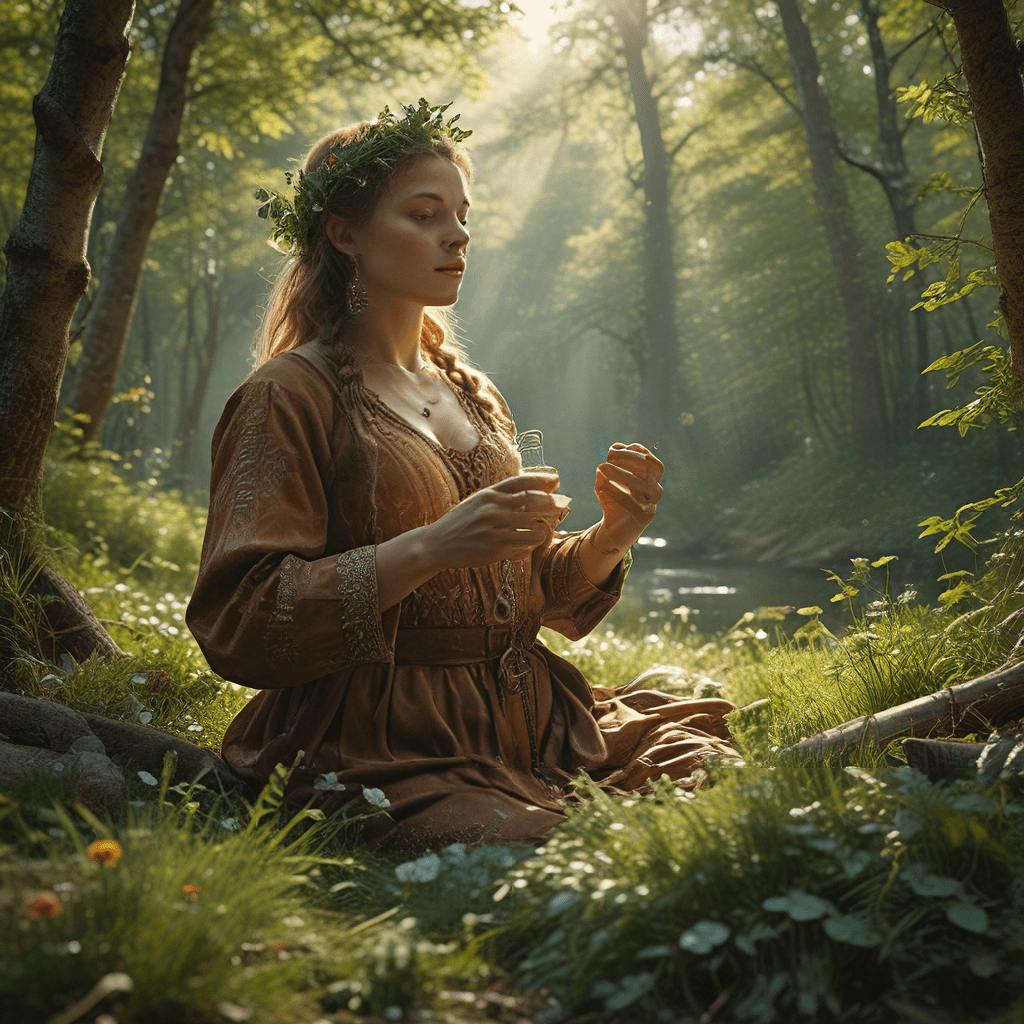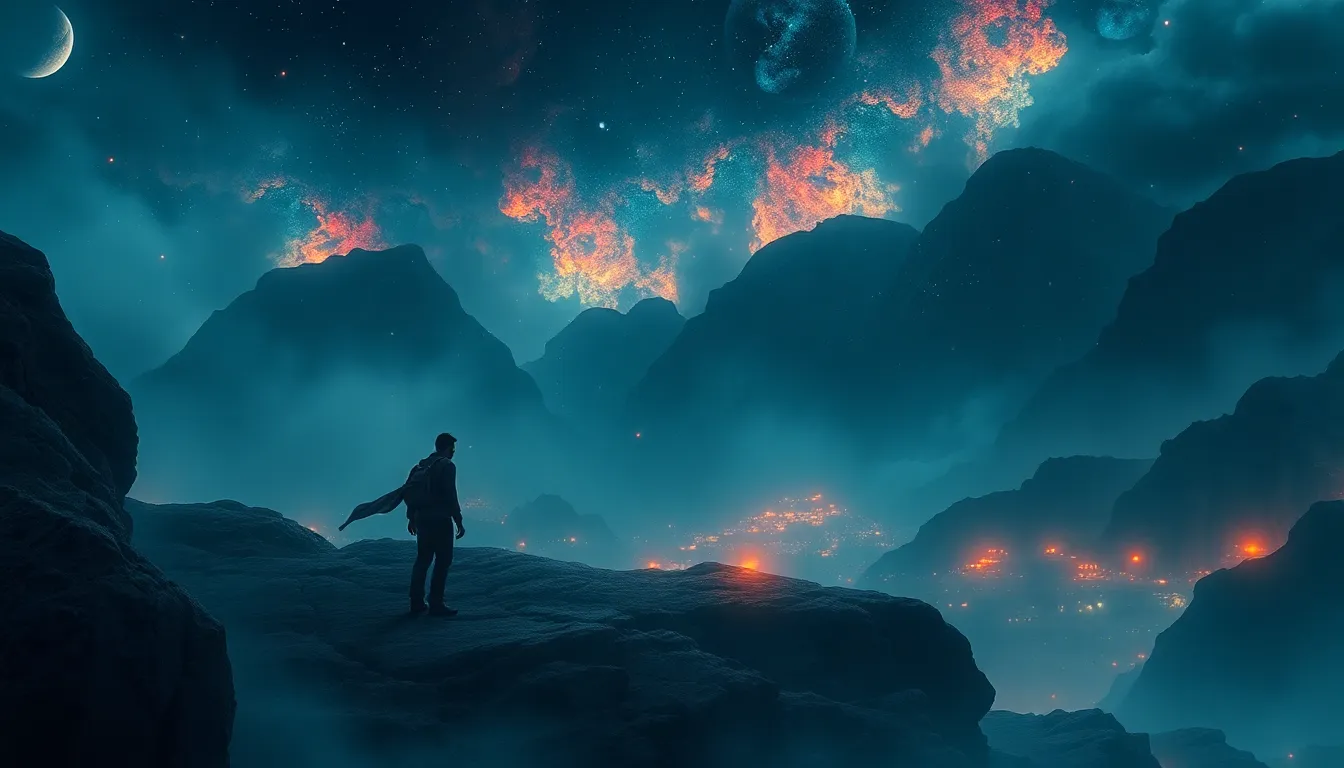Tales of the First Beings: Creation Myths from Different Cultures
I. Introduction
Creation myths are foundational stories that explain how the world and humanity came into existence. These narratives are not only central to understanding the origins of a culture but also serve as a lens through which we can explore the values, beliefs, and identities of different societies.
The importance of creation myths extends beyond mere storytelling; they encapsulate the worldviews of the cultures that tell them. By examining these myths, we gain insight into the psychological and philosophical underpinnings of various civilizations. This article aims to explore the significance of creation myths across different cultures, highlighting their common themes, variations, and the roles they play in shaping societal beliefs.
II. The Role of Creation Myths in Society
Creation myths play a crucial role in shaping the beliefs and values of a society. They provide a framework for understanding the universe and humanity’s place within it. Here are some ways in which these myths impact society:
- Shaping Beliefs: Creation myths often define the nature of existence, the divine, and the moral order. They can establish what is considered sacred and influence societal norms.
- Influence on Art and Literature: Many artistic expressions, from literature to visual arts, draw inspiration from creation myths, enriching cultural heritage and identity.
- Psychological and Philosophical Implications: These stories often address existential questions about life, death, and the universe, providing comfort and guidance to individuals within a culture.
III. Overview of Creation Myths Across Cultures
While creation myths vary widely between cultures, they often share common themes and narrative structures. This section explores some of the similarities and differences found in these stories.
- Common Themes: Many myths involve elements of chaos, creation from nothing, the emergence of light from darkness, and the establishment of order.
- Variations in Narrative Structure: Some myths feature a single deity, while others involve pantheons of gods and goddesses, each playing a role in the creation process.
- Universality: Despite cultural differences, the quest to understand beginnings is a universal human experience, reflected in the diverse creation myths around the world.
IV. Indigenous Australian Creation Stories
One of the most significant cultural narratives in Indigenous Australian culture is the Dreamtime, which encompasses the spiritual and ancestral origins of the land and its people.
- The Dreamtime: This is a complex framework of beliefs that explains the creation of the world, including the landforms, animals, and people.
- Key Figures: Ancestral beings, often depicted as animals or humans, play pivotal roles in shaping the landscape and establishing cultural laws.
- Connection to Land: The Dreamtime emphasizes the relationship between people and their environment, highlighting spirituality, identity, and the significance of land in Indigenous cultures.
V. Mesopotamian Creation Myths
In ancient Mesopotamia, the Enuma Elish describes the chaotic beginnings of the universe and the rise of the gods, particularly Marduk.
- The Enuma Elish: This epic details the battle between the freshwater god Apsu and the saltwater goddess Tiamat, leading to the creation of the world.
- Marduk’s Role: Marduk emerges victorious, establishing order and becoming the king of the gods, symbolizing the triumph of civilization over chaos.
- Influence: The Enuma Elish has impacted later religious texts, influencing the creation narratives found in Judaism and Christianity.
VI. Hindu Creation Myths
Hindu cosmology offers a rich tapestry of creation stories, with a focus on cyclical time and the cosmic dance of creation and destruction.
- The Cosmic Dance of Vishnu: Vishnu, in his various avatars, is often depicted as the preserver who maintains cosmic order.
- Stories in the Rigveda: The Rigveda contains hymns that describe the creation of the universe, emphasizing the unity of all existence through the concept of Brahman.
- Cycles and Reincarnation: Hindu thought encapsulates the idea of cycles of creation and destruction, reflecting the belief in reincarnation and the eternal nature of the soul.
VII. African Creation Myths
Africa is home to a diverse array of creation myths, each reflecting the unique cultures and beliefs of its peoples.
- Diversity of Stories: From the creation myths of the Dogon people to the Zulu, each story reflects the values and natural environments of the respective cultures.
- Trickster Figures: Characters like Anansi the Spider embody cunning and wisdom, often teaching important life lessons through their actions.
- Themes of Harmony: Many African myths emphasize living in harmony with nature and the importance of community and relationships.
VIII. Creation Myths in Native American Cultures
Native American creation myths vary widely among tribes, yet many share themes of emergence and interconnectedness.
- The Earth from Water: Many tribes, such as the Iroquois, tell stories of the Earth emerging from water, often involving a central figure who plays a key role in creation.
- Variations Among Tribes: Each tribe has its own unique story, from the Hopi’s emergence from the underworld to the Lakota’s creation of the world from the breath of Wakan Tanka.
- Interconnectedness: These myths often emphasize the relationship between humans and nature, promoting stewardship and respect for the Earth.
IX. Ancient Greek and Roman Creation Myths
The ancient Greeks and Romans have rich creation myths that reflect their societal values and human nature.
- Chaos and Gaia: In Greek mythology, the universe begins with Chaos, followed by Gaia (Earth) and the emergence of the gods.
- Prometheus and Humanity: The myth of Prometheus highlights themes of creation, punishment, and the struggle for knowledge, symbolizing the Greek reverence for intellect and innovation.
- Reflections on Society: These myths often mirror the values of the time, exploring themes of power, morality, and the human condition.
X. Conclusion
Creation myths serve as invaluable windows into the hearts and minds of cultures around the world. They illuminate the values, beliefs, and identities of societies, providing insights into how people understand their origins and their place in the universe. From the Dreamtime of Indigenous Australians to the cosmic cycles of Hinduism, these stories resonate with universal themes of creation, chaos, and the interconnectedness of life. By studying these myths, we not only celebrate the diversity of human experience but also recognize the common threads that unite us all.



